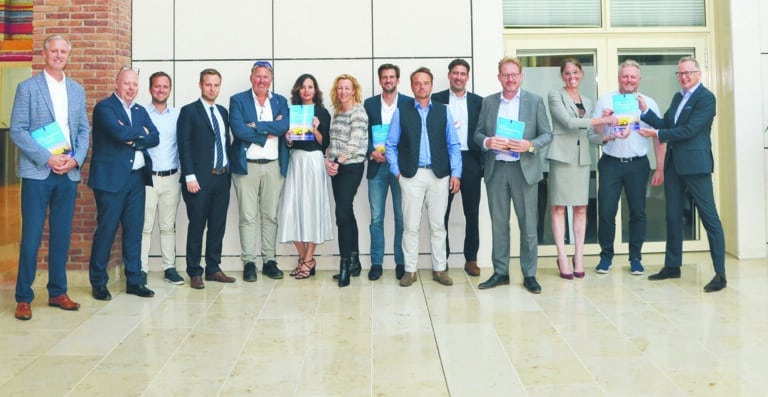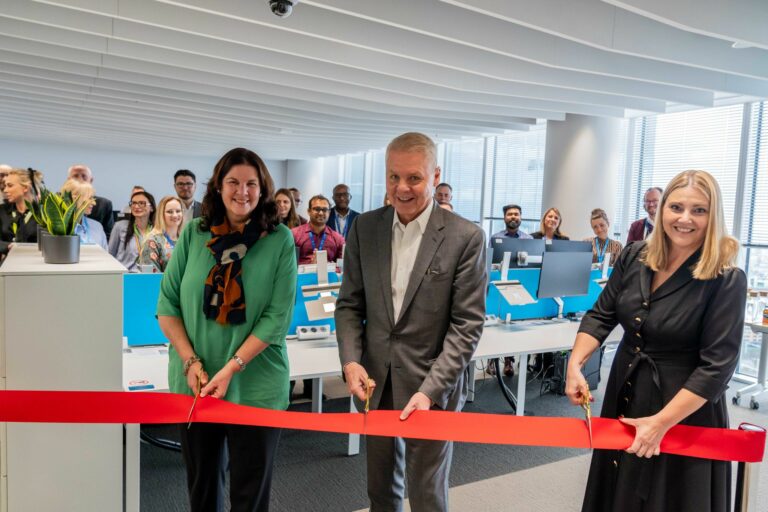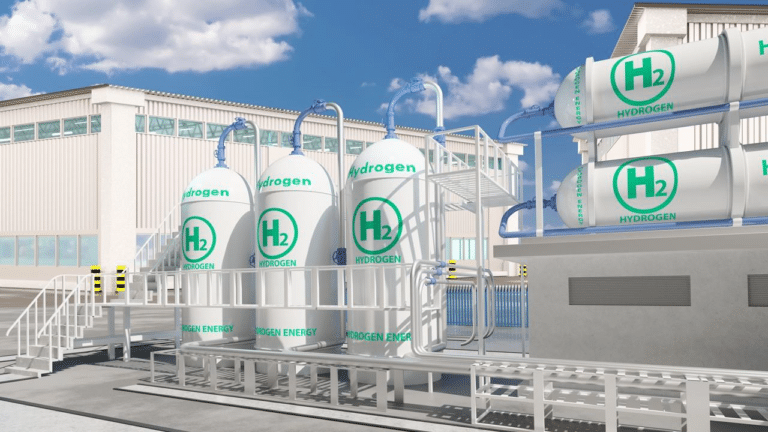Bullish Future for FDI in Poland
Sylwia Ziemacka talks to Courtney Fingar, editor in chief of Investment Monitor, about the prospects for FDI into Poland as the war in Ukraine continues to rage.
How are international investors looking at Poland now in the context of the war in Ukraine? What are the factors being considered?
Poland has been an FDI star in the region, but also generally in Europe and even globally for a number of years, with a huge number of factors working in its favor, from talent and skills, human capital, strong incentives, to location and pro-business governments.
Those fundamentals have not changed and it is these that have led to huge sums of FDI pouring into Poland in the last few decades. Poland has maintained a strong performance, even as the wider FDI climate globally has become tougher. I don’t see those fundamentals changing. However, it’s also obvious that investors value security and certainty. And when you have a war on the doorstep, inevitably that will open up questions about security. But such questions exist all over Eastern Europe and probably Europe as a whole. People now have to factor in an aggressive Russia and how expansionist it ultimately intends to be. Being central to the conflict as a major ally of Ukraine and as a key NATO member puts Poland very much in the spotlight.
What I would add to that, though, is that Poland has also shown its very good side to the world during this conflict. How Poles have opened their homes and their hearts and their wallets to support their neighbors in Ukraine, and that sense of Slavic Brotherhood, have been very heartwarming to see.
So if we think purely in terms of national image, which is really important for investment, I think Poland has shown itself in a very good light indeed.
It’s really positive that that’s being recognized. I would also like to ask you whether another factor has been recognized, namely the visit of Joe Biden to Warsaw. Is the huge support of the US in Poland not only on the military level but also in business something that is recognized internationally?
Yes. The relationship between Poland and the US is obviously extremely strong. And what this crisis shows is how important and how fundamental that relationship is, not just economically, but in terms of security. It’s been obvious for a while that Poland has a role to play as a leader in the region due to its size and its clout economically, but also due to its position and its role as a major US ally and a strong NATO member. I think what we’re seeing in this crisis is Poland really stepping into an extremely important global and regional role. And I know that is recognized by the US. There are also ties that go beyond the economic and security, and that is blood ties between the US and Poland. Large numbers of Polish immigrants, of course, went to the US long ago. Therefore, you have those family ties and that shared sense of history and even culture. I know that is recognized very well by the powers that be in Washington and in the US in general. And again, I think the war has probably solidified that relationship even more.
I would like to take a look at Poland in the context of global supply chains. During Covid Poland and our region was thought to have great advantages in terms of nearshoring. How is the situation now due to the war in Ukraine?
Supply chains have undergone major disruptions globally and as a result are consolidating and shifting, a process that started even before the pandemic, but was accelerated by it. The war in Ukraine now heightens the need to do it even more. There are a lot of implications of this. Some can be positive for a place like Poland and some can be negative, because if we think about nearshoring, it depends on nearshoring to where? Cearly for US companies, a lot of locations, let’s say, closer to the US, are trying to capitalize on this trend. Obviously, Poland is quite far from the US. However, there is an opportunity for Poland to be the nearshoring choice to serve locations in Europe, for example, and it would still be considered a very attractive location because it maintains a cost differential while competing strongly in quality terms. So if you’re thinking of nearshoring to serve, for example, the wider European market, then that may still have some appeal. I know that Poland has been competing very actively with a number of locations in Asia, for example. But part of this nearshoring or supply chain shifting trend means greater regionalization. What that means is that you might consolidate operations and serve Asia from other Asian locations and not necessarily from somewhere like Poland. But I think in all of this there are opportunities for wins. Probably the net result for a place like Poland is more positive than negative.
Do you think that investors see a silver lining at this stage looking at Poland’s geographical location?
It’s very hard to see or even to talk about any silver lining to the war itself because of the suffering and the atrocities happening inUkraine. And that will always be at the front of one’s mind. However, again, for Poland itself, if we break that down a bit and just think of Poland and its positioning for FDI and competitiveness, the country maintains broadly positive headwinds. I see an interesting factor that
can’t be ignored in all of this, namely the huge inflow of refugees from Ukraine. Now, again, the warm heartedness, openness and compassion of Poles is extremely welcome to see. But I think there are questions as to how the refugees will be looked after without placing enormous strain on public finances, how they will find jobs, while also hoping they’ll be able to go back to Ukraine.
So how do you cater to and also make use of the skills of millions of people who’ve been displaced
and not knowing how long they’ll stay? That is a big question. I think for Poland that will have a number of significant implications depending on how the war plays out.
Now I would like to look more into the future. I know it’s very difficult to assume any possible scenarios, but at a certain level, we’ll get to the point where there will be a rebuilding of Ukraine, hopefully sooner rather than later. Is that something being discussed openly among investors? And in this regard what role will Poland play?
Yes. In fact, we’re working on a story on this topic right now at Investment Monitor about reconstruction. It’s obvious there will come a time and hopefully soon. Ukraine must maintain its sovereignty and then the time for reconstruction will come. The international community will have a role to play. I think it is an obligation to help rebuild Ukraine. I think there will be a moral imperative to do it, but also that will open up investment opportunities and lucrative opportunities to play a role in reconstruction. FDI will be absolutely fundamental in this. The devastation has been massive, vital infrastructure, facilities, buildings of all kinds have been destroyed. They will simply have to be rebuilt. Interestingly, I did quite a bit of work reporting in 2009 to 2011 on reconstruction in Iraq. So it’s a topic close to my heart. What was clear was the necessity of foreign investors to play a role in reconstruction. Of course, you don’t want it to be an exploitation situation where you’re making profits at the expense of a place that actually needs support. So the right mix will have to be multilateral aid combined with the smart funneling of private investment in order to rebuild Ukraine.
My last question, to summarize – what are your predictions in terms of ongoing investment in Poland in the short and long term?
Well, predictions are always difficult, but I would remain broadly bullish about Poland’s FDI prospects because, again, the fundamentals from an FDI perspective are far too strong to ignore. To use your words, it’s a large, significant, highly attractive market, an investment destination that has to be in the mix, at least in consideration for any international company operating in Europe or perhaps even globally.







